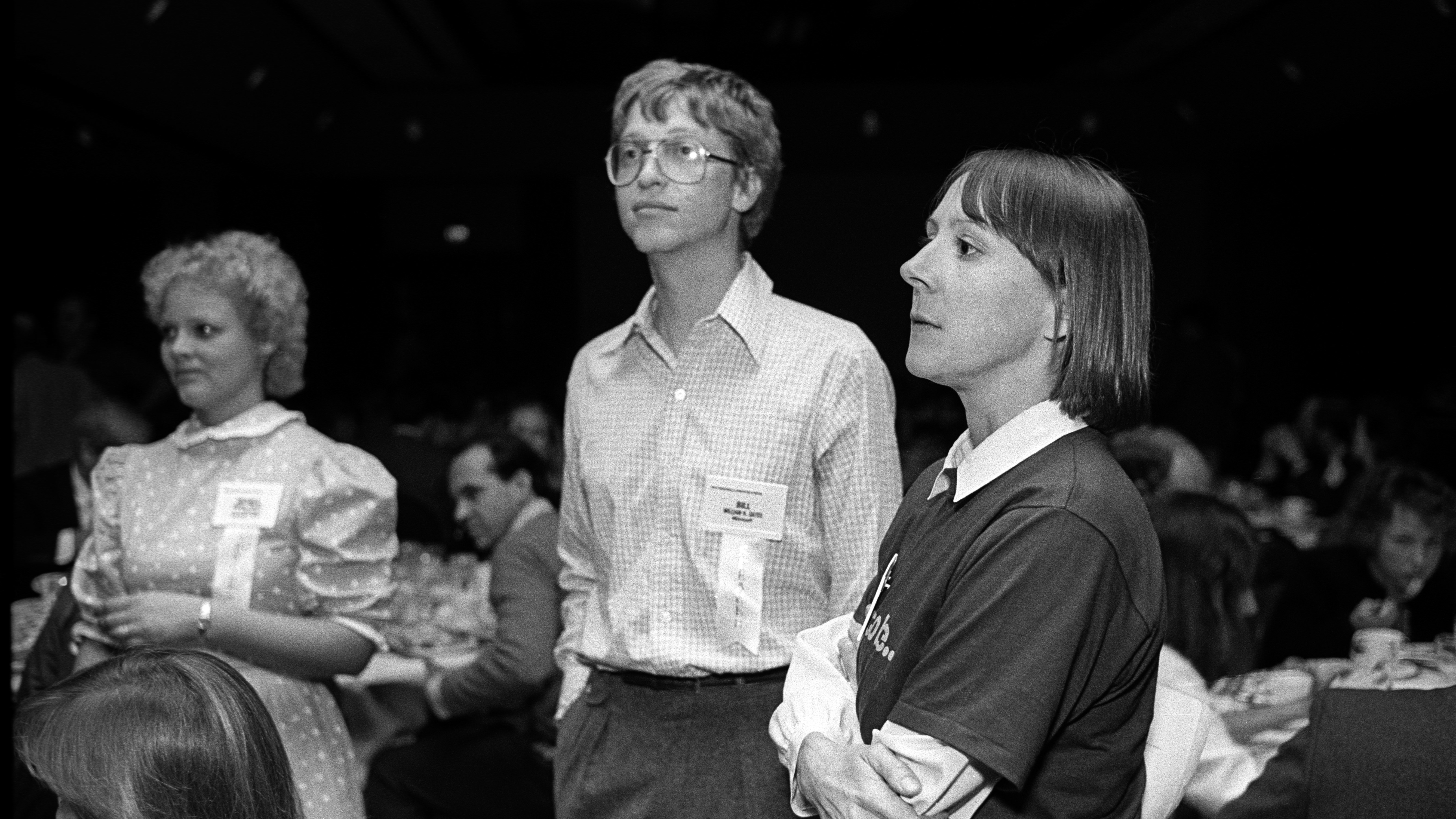Internet Archive preserves and releases 1980s PC radio show that interviewed legends including Douglas Adams, Bill Gates, Timothy Leary, and Jack Tramiel
The Famous Computer Cafe aired in California in the early 1980s.

The Internet Archive has announced the preservation and release of 53 episodes of The Famous Computer Cafe, a radio show that aired in California from 1983-86 and explored the topic of home computing. The show features industry news, adverts for technology of the time, hardware and software reviews, and interviews with a wide range of computing (and cultural) pioneers.
The show had once been preserved by its original makers on reel-to-reel tapes, but over the years these were apparently scattered and lost. The Internet Archive project to preserve the show began when computer historian Kay Savetz acquired several of these tapes at a property sale, and subsequently launched a crowdfunding campaign to digitally archive and make the show available again.
"While full of time-capsule descriptions of 1980s technology news, the most exciting aspect of the show has been the variety and uniqueness of the interviews," writes Savetz. "The list of people that the show interviewed is a who’s-who of tech luminaries of the 1980s: computer people, musicians, publishers, philosophers, journalists. Interviews in the recovered recordings include Timothy Leary, Douglas Adams, Bill Gates, Atari’s Jack Tramiel, Apple’s Bill Atkinson, and dozens of others."
I adore old technology shows, particularly the thrill of listening to smart people try and puzzle-through where the field is going, alongside the nostalgic thrill of an age when people were asking just what computers were, as well as what they can do.
I listened to the episode of The Famous Computer Cafe where they interview a young Bill Gates. He turns up around ten minutes into the show, just after a review of the Muppet Learning Keyboard, which doesn't have very good key responsiveness and may leave a three-year-old bored. Gates was already semi-famous and fabulously successful at this stage, but computers simply weren't as mainstream news as they are now, and their purpose and potential still had to be explained in simple terms.
Gates is first asked to explain an operating system, which he does by talking about how a computer is made of many components, and needs something to communicate between them: "that basic housekeeping function, what we sometimes call input / output management, is performed by an operating system."
Gates goes on to talk about MS-DOS, before listing various bits of Microsoft software including "one of our most popular programs" Flight Simulator: "It lets you be in a plane flying around [...] we have maps of various cities so you can actually see the Sears tower, or whatever landmarks are in the city you happen to be from."
The biggest gaming news, reviews and hardware deals
Keep up to date with the most important stories and the best deals, as picked by the PC Gamer team.
The interviewer asks about the Apple Macintosh, which Gates enthuses about as a pioneer for graphical applications: "We think that graphics will be on all machines [...] so we were enthusiastic to develop graphical applications." Gates goes on to wheel out some of his favourite phrases ("A machine on every desktop, a machine in every home") while talking about the future of computing, including his ideas for computers "to aid you" through what at the time Microsoft called "softer software."
Asked if this means AI, Gates says AI is a "loaded" term. "People think of robots, and they're gonna take over the world [but what I mean] by softer software is the machine recognising what you're trying to do."
This interview took place in November 1984 and, four decades on, it's perhaps not surprising just how right Gates is on almost every topic he addresses, and the absolute conviction with which he talks about where the humble PC is going. Later in the show Gates goes on to talk about MSX, before it moves onto talking to Kazuhiko Nishi, who at the time was spearheading Microsoft's push into Asia, about the Japanese PC market. Near the end of the show there's a brief segment about how new government legislation may affect, get this, working from home on your computer.
The Famous Computer Cafe is a wonderful place to hang out for a while, and the list of interviewees means I've already got several episodes bookmarked for the next few weeks. The 53 shows archived and released do not represent the entirety of the show: these episodes are from the period November 17 1984 through July 12 1985. Other shows on those reel-to-reel tapes are hopefully still out there somewhere, and include interviews with the likes of Ray Bradbury, Robert Moog, Donny Osmond (!), and Gene Roddenberry. So maybe if you have a garage in Los Angeles, give it a clearout.
The story of The Famous Computer Cafe and how this project happened is the subject of a new episode of the Radio Survivor podcast, which interviews co-creator Ellen Fields alongside Kay Savetz.

Rich is a games journalist with 15 years' experience, beginning his career on Edge magazine before working for a wide range of outlets, including Ars Technica, Eurogamer, GamesRadar+, Gamespot, the Guardian, IGN, the New Statesman, Polygon, and Vice. He was the editor of Kotaku UK, the UK arm of Kotaku, for three years before joining PC Gamer. He is the author of a Brief History of Video Games, a full history of the medium, which the Midwest Book Review described as "[a] must-read for serious minded game historians and curious video game connoisseurs alike."

